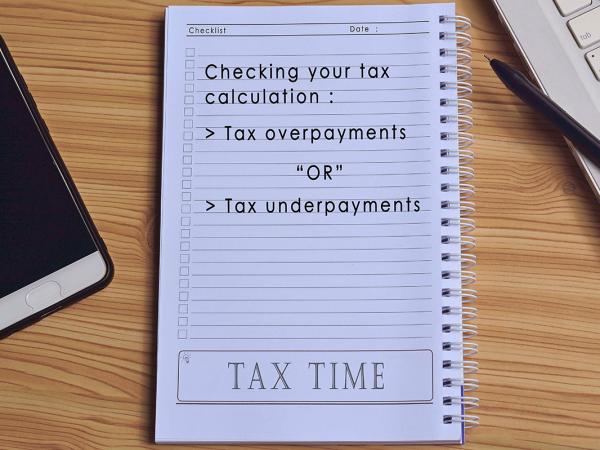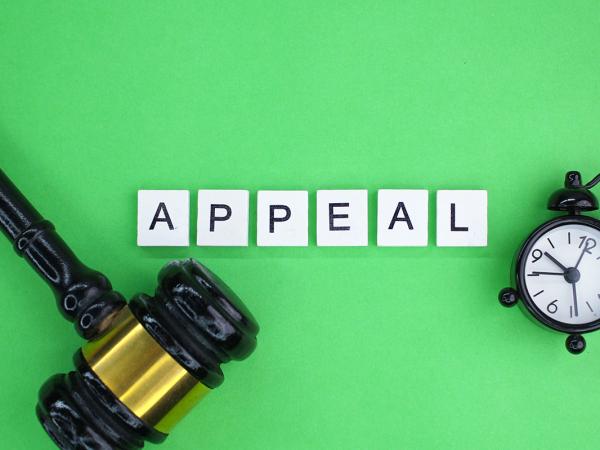Tax payment problems and debt
This page is for people who are unable to pay their tax bill or who have tax debt. If you have received an overpayment of tax credits or have a tax credits debt, you should look at Tax credits: overpayments page in our benefits section.

Content on this page:
Tax payment problems
If you are having a problem paying your tax bill, you should first make sure you understand why you owe tax and that you are satisfied the amount you are told is owed is in fact correct. If you are not sure whether the amount is correct, then you should ask for a detailed explanation. If you think the amount owed is incorrect, you may have certain grounds to dispute or appeal the debt. If you owe penalties as part of the debt, you may be able to appeal these penalties if you have grounds to do so, for example if you have a reasonable excuse.
If you need to take any action, you should do so before you enter into any arrangement to pay the amount demanded. HMRC should agree to postpone collection of any sums in dispute while any disputes or appeals are being dealt with. However, if any part of the debt is not in dispute you will be expected to make arrangements to pay this part.
PAYE
If you are employed or receive a pension and have tax deducted under pay as you earn (PAYE), you can still owe tax in some situations – particularly if you have more than one source of income. You should check our page on PAYE underpayments. This page explains the main circumstances which may give rise to tax being owed by employees or pensioners and what to do if you cannot pay the tax due.
Self assessment
When you complete your self assessment tax return, your tax position is calculated based on the tax return entries and shows you how much tax you need to pay for the tax year. If you file your tax return online, you can print off the tax calculation for your records. If you file a paper tax return, HMRC will send you a tax calculation, known as an SA302 statement.
If you cannot afford to pay your self assessment tax bill, contact HMRC as soon as possible and ideally before the tax becomes due. It might be possible to agree a time to pay arrangement (see below), so that you can spread the total amount due over an agreed period of time, during which you make regular instalment payments to get yourself back up to date.
This can be done by discussion with HMRC or by using an online service (see below), depending on the size of the debt and the amount of time it has been outstanding for. If you are able to use the online service, you will not need to have direct contact with HMRC at this time.
Bear in mind that HMRC are required to collect the debt from you as quickly as is reasonably possible and that any tax paid late will attract interest. An instalment option may cost more in the long run.
Time to pay arrangements
Time to pay is a special arrangement that can be made with HMRC in certain circumstances where you are having difficulty paying a tax bill or anticipate having difficulty in paying a bill that will become due in the near future.
Online service
If you cannot pay your tax bill you may be able to use one of HMRC’s online tools to arrange an instalment plan to settle the amount due.
The tools allow you to set up a time to pay arrangement for amounts of self assessment tax, VAT or employers PAYE provided certain criteria are met. As it is automated this means you do not have to speak to anyone from HMRC to arrange it.
For example, if you cannot pay your self assessment tax bill you may be able to use HMRC’s automated online service to arrange an instalment plan. This can be used if all of the following apply:
- you owe £30,000 or less,
- you intend to clear the debt within 12 months,
- your tax returns are up to date,
- it is less than 60 days after the payment deadline,
- you have no other tax debts, and
- you have no other current instalment plans in place.
If successful, you will be able to settle the bill by monthly direct debit payments over a period of up to 12 months. You have the option of paying a lump sum amount up front to reduce the monthly instalments. You will not be asked for detailed information about your income and expenditure when using this service.
You will not need to contact HMRC directly to discuss the arrangement unless you need to change the plan later – for example, due to a change in circumstances.
To set up a payment plan online, you need a government gateway user ID and password. If you do not have a user ID, you can create one when you set up a payment plan.
Other options
If you cannot use the online tools (for example, you need longer than 12 months to pay the amount due), you should contact HMRC on the payment helpline for the relevant tax to discuss a possible time to pay arrangement.
If you have received a letter from HMRC’s debt management team about an outstanding tax bill you should contact the number on the letter to discuss your options to clear the tax debt.
Negotiating instalments
You should be able to negotiate payment of your tax bill over a 6 to 12-month period with the appropriate helpline, provided that you can satisfy them that you cannot afford to pay the whole amount now and that you will be able to afford to pay in instalments. A longer instalment period can sometimes be negotiated, but any instalment arrangement is entirely at HMRC’s discretion.
When you contact HMRC, you will be expected to make an offer as to how you propose to settle the outstanding amount – that is, what you can afford to pay and what period you need to make the repayments. If HMRC do not agree to your proposal in its entirety, it should form the basis of your discussions to reach an acceptable repayment arrangement.
Before you call HMRC, you should have the following information to hand:
- your tax reference number (unique taxpayer reference or National Insurance number),
- your name and/or the name of your business and address,
- a contact telephone number,
- details of the tax payment that you wish to discuss, and
- details of any repayments you are currently receiving and/or may receive from HMRC in the future.
You should also be prepared to explain why you are having difficulties paying the amount due and what steps you have taken to try to raise funds to pay the debt, as well as your proposal as to how you hope to repay the amount due.
If your payment difficulties have arisen due to the effect of the coronavirus pandemic on either you or your business you need to make this very clear to HMRC.
HMRC also use debt collection agencies to contact taxpayers who owe HMRC money. If you are contacted by such an agency, they should act in a similar manner to HMRC themselves.
The tax charity TaxAid have more information about these agencies and also, more generally, about negotiating time to pay arrangements with HMRC.
There is more information on what to do if you cannot pay your tax on time on GOV.UK.
Late payment interest and penalties
It is important to note that arranging an instalment plan with HMRC to settle an outstanding tax bill does not avoid incurring interest charges. Interest will still be charged from the normal due date for the payment (for example, from 1 February 2024 on any 2022/23 self assessment payments unpaid by 31 January 2024) until payment is received. Current interest rates can be found on GOV.UK.
However, HMRC should not charge late payment penalties in respect of debt which is being paid under an instalment plan in most circumstances, provided the time to pay arrangement was made before such penalties were incurred.
Your rights of complaint and/or appeal
If you have a tax dispute with HMRC, you can find out more about how to challenge or appeal against a decision at Appealing a tax decision. You can find out more about how to make a complaint at Complaining to HMRC. Which routes are open to you depend on what has gone wrong and whether you have legal appeal rights.
Further advice
We recommend you visit the tax debt section of the TaxAid website. TaxAid is a separate charity providing free tax advice to people on low incomes who have tax problems that they cannot resolve with HMRC. They often help those who are in tax debt crisis. Their service is independent and confidential.



